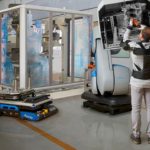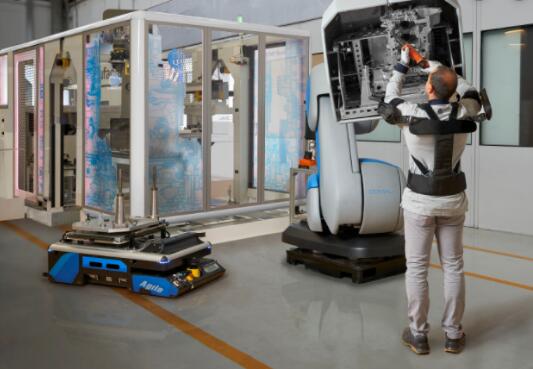
Hyundai Motor Group developed the new Vest Exoskeleton (VEX), a rigid and portable frame, created to help industrial workers who spend long hours working in high altitude environments.
This exoskeleton improves productivity and minimizes the fatigue of industrial operators by mimicking the movement of human joints, optimizing load support, and mobility. The polycentric axis portable vest combines several pivot points with multi-link muscle support, allowing it to function without the need for a battery.
The VEX weighs 2.5 kilos, so it is between 22% and 42% lighter than competing products, portability is one of its advantages, as it fits like a backpack, through straps and buckles, with those that fit the shoulders, chest, and waist. The posterior section extends up to 18 cm in length to adapt to different textures; Likewise, the degree of strength assistance can regulate in six levels, up to a maximum of 5.5 kilos.

The device was developed to assist mainly the workers of the vehicle production lines, whose operation is carried out in higher planes, collaborating, for example, the operators who screw the lower part of the vehicles, to whom they install brake pipes and the ones in charge of connecting the leaks.
The Group is considering implementing VEX in different plants around the world. It is expected to market it through a subsidiary and would cost up to 30% less than existing products, which cost close to the US $ 5,000.
On the other hand, the conglomerate announces that, as part of its plans to develop a wide range of robotic technologies, it will soon begin marketing the “Chairless Exoskeleton” (CEX). Another device that helps workers maintain a sitting position, No need to have a chair. With a weight of just 1.6 kilos, the lightweight device is very durable and is capable of supporting weights of up to 150 kilos.
